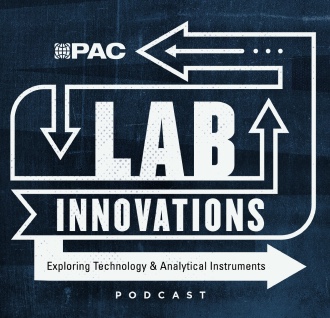16-05-2024
BASF expands its biomass balance portfolio for selected chemical intermediates
BASF will expand its biomass balance offering to include BMBCertTM 1,4-butanediol (BDO), tetrahydrofuran (THF), polytetrahydrofuran (PolyTHF) and 3-(dimethylamino)propylamine (DMAPA). In addition to the production site in Ludwigshafen, Germany, the site in Geismar, Louisiana, has also achieved certifications for all these products. The Ulsan site in South Korea has obtained certification for PolyTHF. With these certifications, BASF can now offer its customers regionally produced ISCC PLUS and REDcert2-certified products for which renewable resources replace fossil feedstock and additionally reduce the cradle-to-gate product carbon footprint (PCF).
“The new certifications for key products in our portfolio demonstrate our commitment to sustainability and our vision to be the preferred partner for sustainable intermediates. With our biomass balance portfolio, we are helping our customers achieve their sustainability goals by replacing fossil-based raw materials and reducing the cradle-to-gate carbon footprint. We are committed to driving the sustainability transformation of the chemical industry and we are proud to offer more products that contribute to our customers' sustainability goals,” said Ketan Joshi, President of BASF’s operating division Intermediates.
The BMBcert*** offerings contribute to a reduction in fossil feedstock demand. At the beginning of the value chain, fossil-based raw materials are replaced by certified renewable resources, and a corresponding amount of renewable content is attributed to the product according to a mass balance approach. The resulting BMBCert product will have a lower product carbon footprint compared to the conventional BASF product. For example, according to Asahi Kasei Corporation, using BASF’s THF BMB to produce its mass balance grade premium sustainable stretch fiber under its ROICA brand could lead to an approximate 25 percent reduction in CO2 emissions compared to its existing products****.
Essential raw materials in many value chains
BDO is for example used for the production of PolyTHF. BASF’s customers use PolyTHF for example to produce elastic spandex and elastane fibers that are used for a wide range of textiles such as swimsuits, sportswear and underwear, but also outerwear such as shirts and stretch jeans. The elastic fibers ensure wearing comfort in the long run, and they are resistant to moisture and microbes. PolyTHF also serves as a chemical building block for the production of thermoplastic polyurethanes (TPU), which BASF customers use to make highly abrasion-resistant and elastic hoses, films and cable sheathing, primarily for the automotive industry. Other applications include thermoplastic polyetheresters, polyetheramides and cast elastomers, which can be used in the manufacturing of various products such as wheels for skateboards and industrial rollers. With production plants for PolyTHF in Europe, North America and Asia Pacific, BASF is one of the world’s leading suppliers of this versatile intermediate product.
BDO is a starting material for polybutylene terephthalate (PBT), an engineering plastic that is used successfully – for instance under the BASF brand Ultradur® –in the automotive, electrical and electronics industries. BDO also is used as an intermediate for the production of tetrahydrofuran (THF) and N-methylpyrrolidone (NMP), whose main applications are as essential solvents in the manufacturing of pharmaceuticals and for lithium-ion battery cathodes, such as those used in electrical vehicles. With production plants for BDO in Europe, North America and Asia Pacific, BASF is one of the world’s leading suppliers of this versatile intermediate product.
DMAPA is an important building block for betaines, which are used in the production of gentle liquid soaps, shampoos and dishwashing detergents. DMAPA is also used in water treatment as well as in the production of plant protection products, lubricant additives, polyurethane foams and epoxy resin hardeners. BASF is one of the world’s leading manufacturers of DMAPA with production sites in Europe, North America and Asia-Pacific.
* REDcert2 and ISCC PLUS are sustainability certification schemes for the use of sustainable biomass as raw material in the chemical industry. A certification according to these certification schemes confirms that the biomass used is sustainable and has been fed into the production system in the required amount. It also confirms that the sustainable biomass has been correctly attributed to the corresponding sales products. The certifications are awarded on the basis of on-site audits conducted by independent auditors.
** Details on Sustainable Solutions for Chemical Intermediates (basf.com)
*** BMBCert: For a biomass balanced product, BASF replaces 100% of the fossil raw materials which are normally needed to produce the product with renewable resources in its Verbund production setup. The renewable carbon cannot be physically identified in the final product, but the renewable share is fully attributed to it via a certified mass balance approach. This chain of custody methodology is called biomass balance. To ensure transparency, compliance with recognized mass balance standards is independently certified for each biomass balanced product of BASF.
**** News Release: BASF supplies Asahi Kasei’s ROICA with biomass balanced tetrahydrofuran
News Category:
-
Valmet and Wilhelmina N.V. forge strategic partnership to commercialise TG2 pellet plants
Valmet and Wilhelmina, proudly announce a strategic collaboration to commercialise the TG2 pellet technology on a global scale. Wilhelmina N.V., a Dutch renewable ...
01-05-2025
-
Calpine Corp and ExxonMobil sign CO2 transportation and storage agreement
Exxon Mobil Corporation announced an agreement with Calpine Corporation, the nation’s largest producer of electricity from natural gas, to transport and permanently ...
01-05-2025
-
OMV unveils Austria’s largest green hydrogen production plant
OMV today announced the successful start-up of its 10 megawatts green hydrogen production plant, located at the Schwechat refinery near Vienna, the largest of its kind ...
01-05-2025
-
Masdar and OMV advance partnership on green hydrogen development
Masdar, the UAE’s clean energy leader, and OMV, Austria’s integrated chemicals, fuels and energy company, have signed an agreement to partner in the production of ...
01-05-2025
-
Repsol and Bunge to boost Ddevelopment of renewable fuels in Europe with Intermediate Crops
Repsol and Bunge today announced a major milestone in the development of renewable fuels in Europe: the incorporation of intermediate novel crops in the production of ...
01-05-2025
-
Sulzer partners with Hyme Energy to revolutionise renewable energy storage
Building on the success of the pioneering Molten Salts Storage (MOSS) project in Denmark, Sulzer is developing advanced pumps for Hyme Energy’s patented molten hydroxide ...
01-05-2025
-
Vioneo appoints Wood to design world’s first industrial scale fossil-free plastics facility
Vioneo has awarded Wood, a global leader in consulting and engineering, a multi-million dollar FEED contract to deliver the front-end engineering design for its revolutionary ...
01-05-2025
-
Topsoe chosen as technology provider by Zhejiang Jianglan for SAF project
Topsoe, a leading global provider of advanced technology and solutions for the energy transition, has signed an agreement with Zhejiang Jianglan, a company in the Jianglan ...
29-04-2025
-
TotalEnergies to offtake 1.5 Mtpa of LNG from the future Train 4 of Rio Grande LNG Facility
TotalEnergies has signed a Sales and Purchase Agreement (SPA) with NextDecade to buy 1.5 million tons per annum (Mtpa) of liquefied natural gas (LNG) from the future ...
24-04-2025
-
TotalEnergies to supply LNG for 15 years in the Dominican Republic
TotalEnergies has signed an agreement with Energia Natural Dominicana, the Joint Venture between AES Dominicana and Energas in the Dominican Republic, for the delivery ...
24-04-2025

















